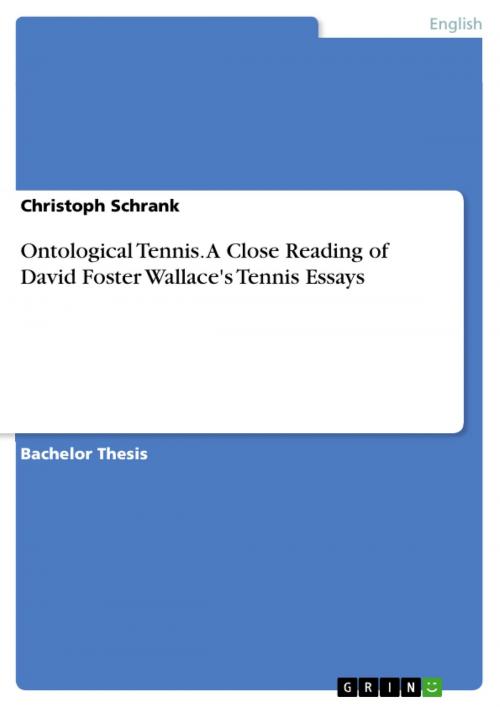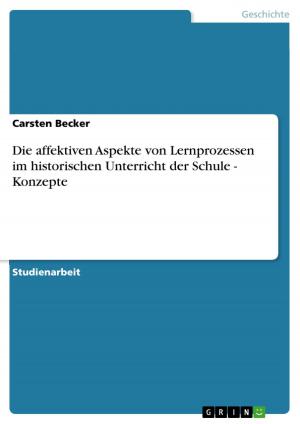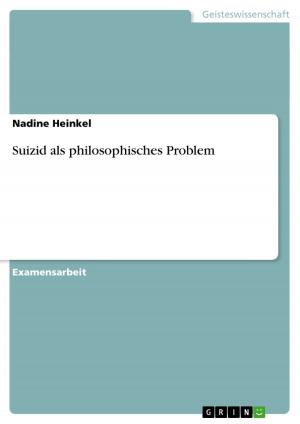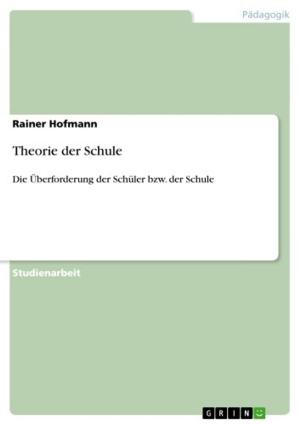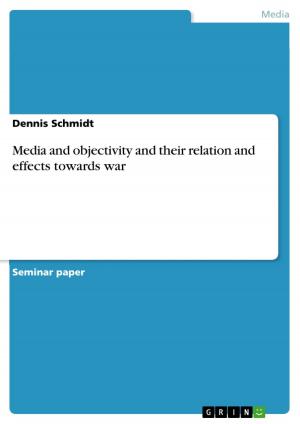Ontological Tennis. A Close Reading of David Foster Wallace's Tennis Essays
Fiction & Literature, Anthologies| Author: | Christoph Schrank | ISBN: | 9783668514577 |
| Publisher: | GRIN Verlag | Publication: | August 31, 2017 |
| Imprint: | GRIN Verlag | Language: | English |
| Author: | Christoph Schrank |
| ISBN: | 9783668514577 |
| Publisher: | GRIN Verlag |
| Publication: | August 31, 2017 |
| Imprint: | GRIN Verlag |
| Language: | English |
Bachelor Thesis from the year 2017 in the subject English Language and Literature Studies - Comparative Literature, grade: 1,0, , language: English, abstract: This paper focuses on David Foster Wallace collected essays about tennis which is called String Theory. The five essays approach and use the sport for different goals. In his typical manner, tennis becomes a starting point for quite different topics, be it Wallace's own life, his thoughts on a literary genre (in this case 'top athletes' autobiographies'), masculine physicality, transcendence, or the industry behind sports events. While stylistically Wallace follows the method of 'thick description,' injecting elements of metafiction and humor, he ultimately takes tennis as a starting point for ontological questions in his search for some form of deeper insight or even truth that can be found on the sidelines of his respective topic. His approach to writing essays and the function and possibilities of that literary form displays apparent similarities with the work of the protagonists of the so-called New Journalism. After a brief introduction to New Journalism as a mode of writing and some of its elements and key terms, the author will focus on Wallace's five tennis essays individually. In addition to connecting his M.O. to the tradition of New Journalism on the formal and content level, the author will provide a reading of each of Wallace's tennis essays with recourses to different theoretical approaches. In other words this paper will probe each essay for the question: about what is he really writing, how Wallace is doing it and why he chooses tennis of all things that functions as his way in. In addition to his work as a writer of fiction (his bibliography includes three novels and three short story collections) David Foster Wallace has written a large number of essays, most of them for magazines and newspapers. His topics range from literature and film to mathematics, from music and subcultures to travel and the tourism industry, from politics to food, and have been issued in numerous collections before and after his self-inflicted death in 2008.
Bachelor Thesis from the year 2017 in the subject English Language and Literature Studies - Comparative Literature, grade: 1,0, , language: English, abstract: This paper focuses on David Foster Wallace collected essays about tennis which is called String Theory. The five essays approach and use the sport for different goals. In his typical manner, tennis becomes a starting point for quite different topics, be it Wallace's own life, his thoughts on a literary genre (in this case 'top athletes' autobiographies'), masculine physicality, transcendence, or the industry behind sports events. While stylistically Wallace follows the method of 'thick description,' injecting elements of metafiction and humor, he ultimately takes tennis as a starting point for ontological questions in his search for some form of deeper insight or even truth that can be found on the sidelines of his respective topic. His approach to writing essays and the function and possibilities of that literary form displays apparent similarities with the work of the protagonists of the so-called New Journalism. After a brief introduction to New Journalism as a mode of writing and some of its elements and key terms, the author will focus on Wallace's five tennis essays individually. In addition to connecting his M.O. to the tradition of New Journalism on the formal and content level, the author will provide a reading of each of Wallace's tennis essays with recourses to different theoretical approaches. In other words this paper will probe each essay for the question: about what is he really writing, how Wallace is doing it and why he chooses tennis of all things that functions as his way in. In addition to his work as a writer of fiction (his bibliography includes three novels and three short story collections) David Foster Wallace has written a large number of essays, most of them for magazines and newspapers. His topics range from literature and film to mathematics, from music and subcultures to travel and the tourism industry, from politics to food, and have been issued in numerous collections before and after his self-inflicted death in 2008.
